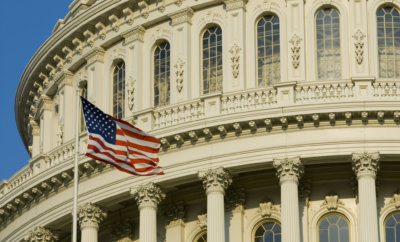Immigration
Dreamers Left in Limbo as U.S. Senate Rejects 4 Immigration Bills

Representational Image
Photo: Bigstock
The United States Senate reached deadlock on four separate proposals that addressed immigration issues.
The United States Senate voted out four separate proposals on Feb. 15 about the immigration bill, leaving the “Dreamers” in a limbo yet again. United States President Donald Trump’s immigration bill, which was among the four, suggested a 10-12 year path to citizenship for the Deferred Action for Childhood Arrivals (DACA) as well as an additional $25 billion for improving border security.
The Four Proposals
The Senate voted on four immigration bills, each of which needed 60 votes to go forward. The White House issued a statement around midday, saying that it would veto the bipartisan bill.
The first bill up for voting was The Coons-McCain bill, which would have provided citizenship to the undocumented immigrants who came to the United States as children. It did not offer any money for the border wall but included money for increased border security measures. The bipartisan bill failed 52 to 47.
Second up was the Toomey amendment by Sen. Pat Toomey of Pennsylvania, which did not address DACA or border security. It would have penalized sanctuary cities for refusing to enforce federal law. It failed 54 to 45.
The third bill that was put up for voting was the Common Sense Caucus, a large bipartisan group led by Sen. Susan Collins of Maine. It had been endorsed by the Democratic leadership. It would have provided a path to citizenship for the DACA immigrants, offered $25 billion for border security, and prevented DACA recipients from sponsoring their parents for legal status. It failed 54 to 45. Trump had threatened to veto this bill.
Last up was the Grassley bill, which would have provided citizenship for the DACA beneficiaries, offered $25 billion to fund a southern border wall, and curtailed family immigration and stopped the diversity visa lottery program.
The Common Sense Caucus bill had the most chances of being approved, but some Democrats and most GOP members, who earlier had a moderate stand on immigration, refused to vote for it. The impasse in the policymaking comes despite the government shutdown and almost six months after Trump’s administration declared that it would end the DACA program in March.
However, the beneficiaries of DACA are safe for now after two courts ruled that they cannot be deported since Trump’s decision to end the program was “unlawful.” The U.S. administration has said that it won’t extend the deadline for DACA to expire beyond March 5 if the Congress doesn’t come to a decision.
The DACA, put in place during the Barack Obama presidentship, provided relief to those who were born outside the United States and were brought to the country illegally before the age of 16. They had to meet some conditions for not being deported for around two years, and the program allowed them to study and get a job. This affects around 3,000 to 5,000 Indians, with around 17,000 more Indians being eligible for it.
“If a young person has received DACA authorization, it has raised the hopes of this young person and the parents. The child can now find a proper job and embark upon a career. Losing DACA authorization is like shattering the American dream. The child can no longer work and pursue his or her dream in America,” Cyrus Mehta, an immigration attorney in New York, had told the Economic Times.




You must be logged in to post a comment Login